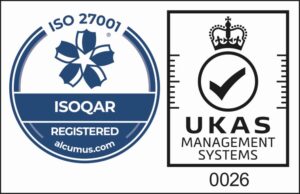IT MSPs and IT Disaster Recovery: Minimizing Downtime and Ensuring Business Continuity
In today’s digital landscape, businesses rely heavily on their IT infrastructure to operate efficiently and effectively. However, unforeseen events such as natural disasters, cyberattacks, hardware failures, or human errors can disrupt business operations and lead to significant downtime. This is where IT Managed Service Providers (MSPs) play a critical role in helping businesses implement robust IT disaster recovery strategies to minimize downtime and ensure business continuity. Let’s explore the role of MSPs in IT disaster recovery and the benefits they bring to businesses:
Risk Assessment and Business Impact Analysis
MSPs conduct thorough risk assessments and business impact analyses to identify potential threats and vulnerabilities that could impact the IT infrastructure. They evaluate the criticality of systems and data, assess the potential impact of disruptions, and help businesses prioritize their recovery efforts. MSPs work closely with organizations to understand their recovery time objectives (RTOs) and recovery point objectives (RPOs) to tailor the disaster recovery plan accordingly.
Disaster Recovery Planning and Documentation
MSPs assist businesses in developing comprehensive disaster recovery plans (DRPs) that outline the necessary steps and procedures to be followed in the event of a disaster. They work with organizations to document key processes, roles and responsibilities, communication protocols, and recovery strategies. MSPs ensure that the DRP is well-documented, regularly reviewed, and aligned with industry best practices and compliance requirements.
Data Backup and Recovery
MSPs help businesses establish efficient and secure data backup mechanisms to ensure data resiliency. They assist in implementing backup solutions that automate the backup process, provide regular backups of critical data, and ensure off-site storage for data redundancy. MSPs also help businesses define recovery strategies and test data recovery processes to ensure the integrity and availability of critical data in the event of a disaster.
Infrastructure Replication and Redundancy
MSPs assist businesses in implementing infrastructure replication and redundancy solutions to minimize downtime and ensure high availability. They help organizations set up redundant systems and environments that can take over operations seamlessly in the event of a failure. MSPs leverage technologies such as virtualization, cloud computing, and load balancing to replicate infrastructure components and ensure continuous operation of critical systems and services.
Continuous Monitoring and Testing
MSPs provide continuous monitoring of IT infrastructure to detect any potential issues or anomalies that could impact business operations. They leverage monitoring tools and technologies to proactively identify signs of potential failures or breaches. MSPs also conduct regular disaster recovery testing and simulations to validate the effectiveness of the recovery strategies, identify areas for improvement, and ensure that the recovery process meets the defined RTOs and RPOs.
Rapid Incident Response and Recovery
In the event of a disaster or disruption, MSPs play a vital role in providing rapid incident response and recovery services. They work closely with businesses to execute the predefined recovery procedures, restore critical systems and data, and bring operations back to normalcy as quickly as possible. MSPs deploy their expertise, resources, and technical capabilities to minimize downtime and ensure a smooth recovery process.
Business Continuity Consulting and Support
MSPs act as trusted advisors to businesses, providing ongoing consulting and support for business continuity planning and execution. They assist organizations in reviewing and updating their disaster recovery strategies based on changing business needs, technology advancements, and emerging threats. MSPs also help businesses establish communication protocols, emergency response procedures, and crisis management frameworks to ensure a holistic approach to business continuity.
Scalability and Flexibility
MSPs provide scalable and flexible disaster recovery solutions that can adapt to the evolving needs of businesses. They help organizations scale their disaster recovery capabilities as the business grows or experiences changes in infrastructure. MSPs leverage cloud-based disaster recovery solutions that offer cost-effective scalability and flexibility, enabling businesses to align their disaster recovery strategies with their operational requirements.
By partnering with IT MSPs for IT disaster recovery, businesses can minimize downtime, ensure business continuity, and protect their critical systems and data. MSPs bring expertise, resources, and specialized tools to help organizations plan, implement, and maintain robust disaster recovery strategies that align with their unique business requirements and compliance obligations




